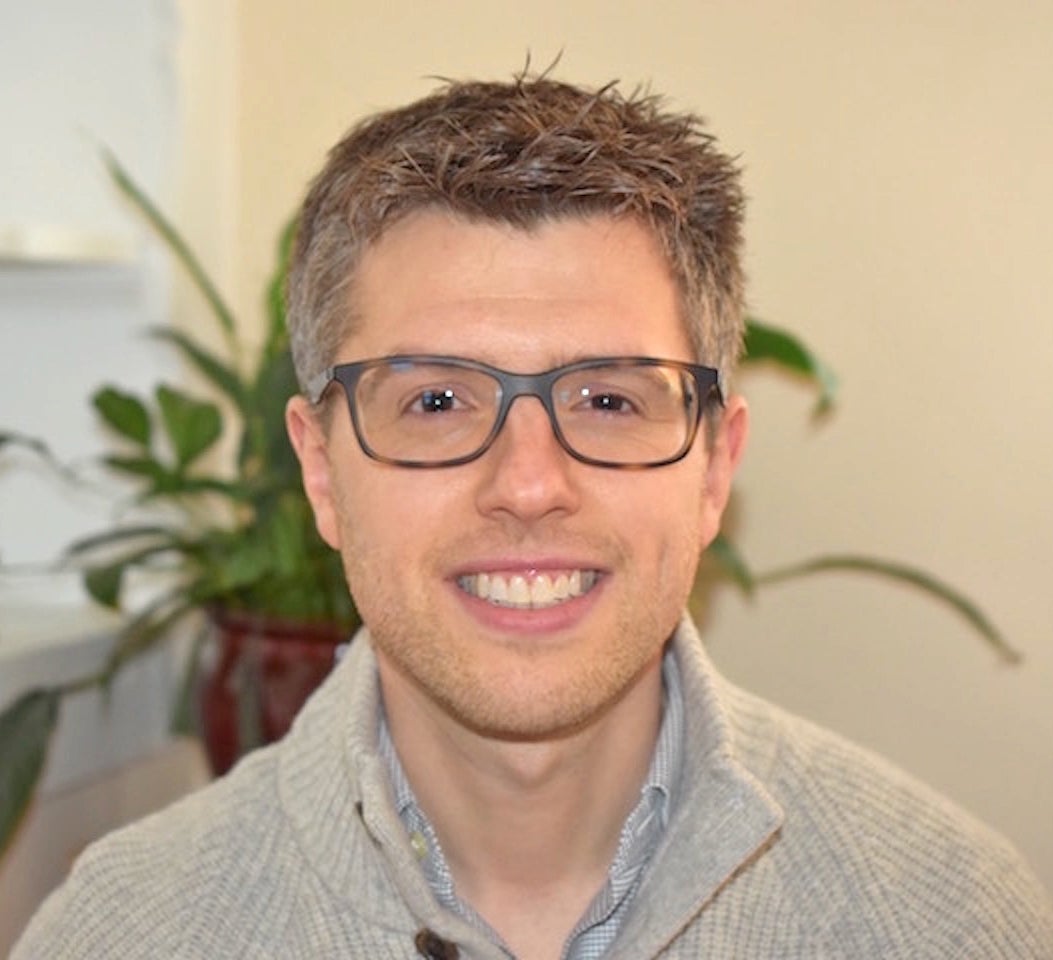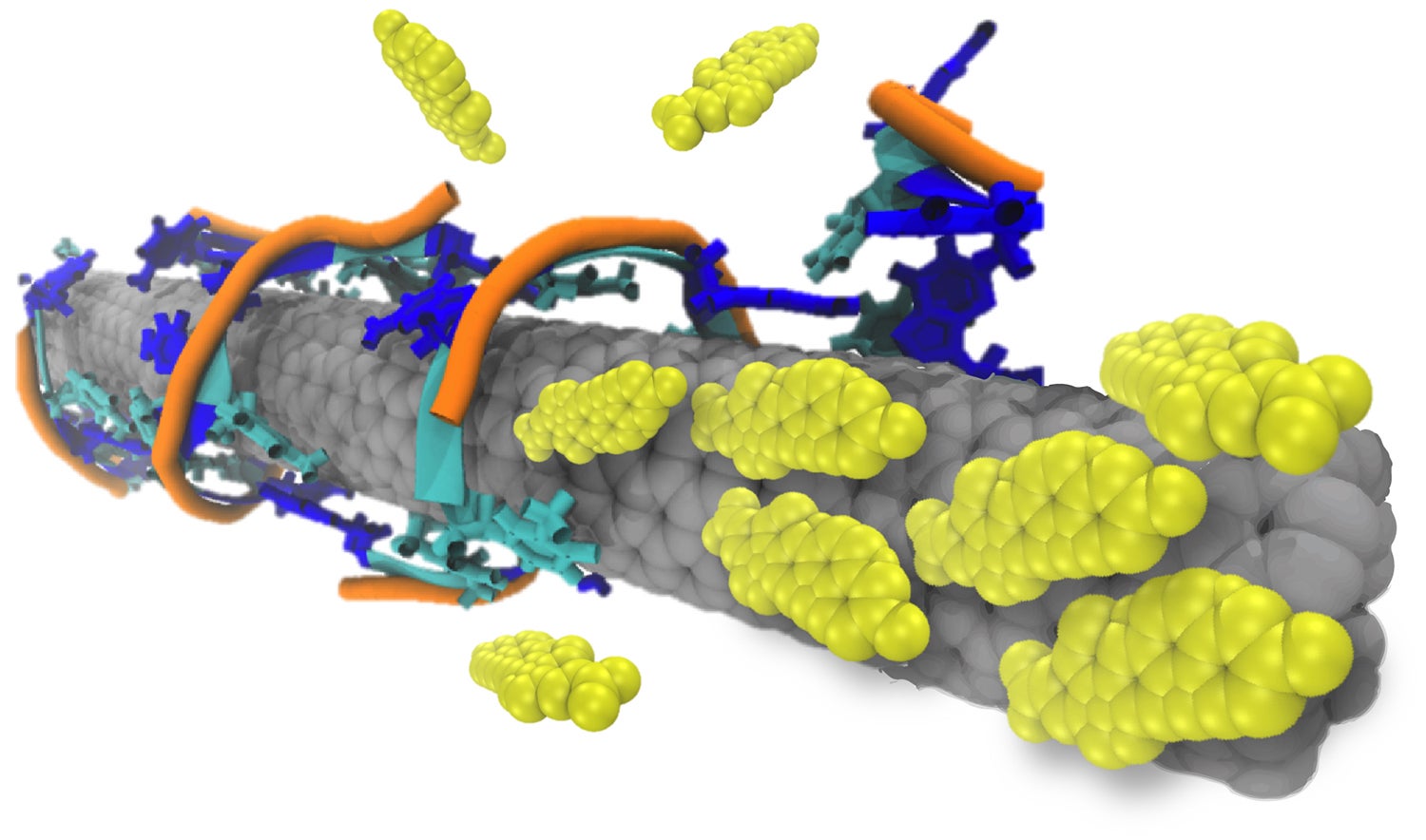KINGSTON, R.I. – July 15, 2019 — If there was a sensor small enough to interact with and enter individual cells, imagine the information that could be collected.
University of Rhode Island chemical engineering assistant professor Daniel Roxbury plans to use carbon nanotubes, which are 100,000 times smaller than the width of a human hair, to serve as sensors and gather information for biomedical purposes.
Roxbury received a five-year grant for $500,000 from the National Science Foundation to develop an entirely new approach to imaging within live cells. The funding was awarded to Roxbury through NSF’s Faculty Early Career Development Program (CAREER). The project is titled, “Spectral imaging for sub-cellular nanometrology and nanotoxicology.”

“Carbon nanotubes have extraordinary physical and optical properties, which have demonstrated applications in materials science, chemistry and biology,” said Roxbury. “The nanotubes emanate light. They can function as sensors by changing the color of the light that is emitted in response to a detected molecule. We will use this technique to count the number of nanotube sensors that enter the cells.”
Once the nanotubes enter the live cells, Roxbury will study how the cells and nanotubes interact.
“We are interested in how the cells process the internalized nanotubes and what the ultimate fate is of the nanotubes,” said Roxbury. “Do the nanotubes eventually get released from the cells? The answer to that question remains largely unknown.”
Roxbury acknowledged that whenever a foreign material is introduced, there are possible risks.
“There are inherent risks associated with potential toxicity,” said Roxbury. “We have gone through several processing and purification steps to increase the biocompatibility of our nanotubes. In doing so, we have observed negligible side effects at the low concentrations of nanotubes that are required for sensing applications.”
Roxbury will conduct the research in his NanoBio Engineering Laboratory, where he will be assisted by two graduate students and three undergraduates.
The piece of equipment that will most frequently be used will be a hyperspectral fluorescence microscope, which was purchased for $250,000 when Roxbury joined the URI faculty in 2016 and established his lab.
The researchers will first investigate the behavior of nanotubes in simple solutions and biological fluids (blood plasma) before moving on to live cells. Once the research team is ready to examine the interactions of nanotubes with a variety of live human cells, they will conduct experiments using immune cells, cancer cells and cells that line the blood vessels.
While Roxbury is the sole principal investigator on the project, he expects to collaborate with Angela Slitt, a professor in URI’s College of Pharmacy.
“I’m looking forward to working with Dan because it’s an excellent opportunity to apply innovative, new technologies to advance biomedical sciences,” said Slitt. “I’m specifically interested in discovering non-invasive methods to detect fatty liver disease.”
“We are developing these nanotube-based sensors for a variety of diseases,” said Roxbury. “In addition to the detection of non-alcoholic fatty liver disease, a precursor to hepatitis, we are also creating sensors for the early detection of cancers for use in implantable and/or wearable devices.”
A stipulation of the grant calls for the research to be incorporated into a kindergarten to 12th grade educational and outreach program through interactive seminars and practical laboratory experience.
“We’ve established an outreach program at Narragansett High School for juniors and seniors who are interested in pursuing STEM-related careers,” said Roxbury. “An eight-week program in the spring will enable students to attend interactive seminars and visit my lab for hands-on experience in nanotechnology and biology.”
Information from Roxbury’s research project will also be integrated into a bionanotechnology course he offers every other fall semester for upperclassmen and graduate students. The course features guest lectures from prominent figures in local biotech startup companies and academia.
Roxbury expects to generate intellectual property and file provisional patents as a result of findings from the new imaging technique.
“This fundamental work will aid in the development of nanotubes as robust and commercially available sensors for routine biomedical usage.”

